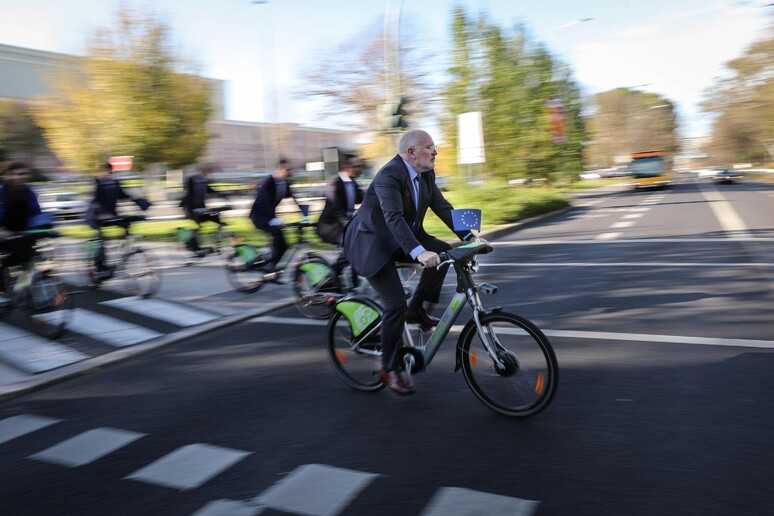these forms of transport, which until a few decades ago would have seemed the stuff of science fiction, are now part of the reality of the world's major metropolises.
These innovations can be seen in action in cities such as Sao Paulo and Rio de Janeiro in Brazil and they are now considered an 'irreversible' change for a market that is moving towards a model of sustainable mobility. "In my opinion this trend is irreversible, in part because you can now see the involvement of big companies, the ones that indicate the direction of the whole market, and they are developing their own vehicle-sharing programmes," Carla Fonseca, the director of Garimpo Solucoe and a specialist in creative solutions for creative cities, told ANSA. Faced with this new reality, society, the authorities and the market are facing the challenge of creating regulations for the use of these new - and redesigned - forms of transport. "At the moment the big debate regards physical space," said Luis Antonio Lindau, the director of WRI Brasil's City programme. "Where should these vehicles be used, what type of accidents can they cause, what are the hidden dangers of these new forms of transport? "They require space that is dedicated exclusively to them because the sidewalks are not the most suitable places for them.
"In the cities of the future, the biggest dispute will be for the side of the road". One of the most emblematic cases is that of electric kick scooters.
With the multiplication of apps and companies that rent scooters, the cities of Brazil and of the whole world are seeking to establish highway codes for this form of transport, banning them from sidewalks and high-speed roads and obliging the users to wear safety equipment, such as helmets. Lindau thinks it is likely that people will move around cities in a totally different way from today in 10 years' time. "The electric-push-scooter industry is currently showing strong growth, as is that for shared electric bikes," he said.
"An electric bike is actually assisted motion because, although it has a battery, it only works of the user pedals". As for cars and bigger vehicles, the market debate is not just about traffic regulation, but it is also about energy. "I came back from the Netherlands a few weeks ago and all the taxis that went to the airport were electric," said Alexandre Sedlacek Moana, the president of the Brazilian Association of Energy Conservation Service Companies (ABESCO). "This transition has to be done properly or there is a risk of it being a mere green gesture, a sign of sustainability that in practical terms is not real.
"The technological migration needs to be accompanied by intelligence.
"For example, if you have to burn fossil fuels in a plant to provide electricity for these new vehicles, it means that you are continuing to pollute anyway.
"The only result is that the process is decentralised". This issue is being discussed in Sao Paulo during Ecoenergy (the International Fair and Congress of Clean and Renewable Technologies for the Energy Generation), which is running May 21 to 23 at the Sao Paulo Expo and is organized by Cipa Fiera Milano.
This initiative is an opportunity to present the latest developments for the use of renewable energy, including in the field of mobility, as well as for debates and seminars. According to Moana, who is chairing a seminar at Ecoenergy on so-called Smart Grids, hybrid cars represent the model best suited to the Brazil market as "Brazil is a special case because there are still cars powered by alcohol from the 1980s.
"A half alcohol, half electric car would be an interesting offer".
In the meantime other companies and investors, such as Elon Musk from Tesla, have concentrated on the development of electric cars that are both competitive and capable of replacing conventional vehicles. "It will take a little while to get to the substitution because it regards the vehicle assembly sector, which has a stable place on consolidated markers and has no interest in breaking the mold," said Rodrigo Contin, a mechanical engineer and the CEO of HiTech Eletric, a Brazilian electric car and truck company that is now developing models of solar-powered vehicles. HiTech Eletric works mainly with fleets of company vehicles, but its manager said he has noticed growing interest in vehicles powered by alternative energy by end consumers. "There is a sort of repressed demand in urban mobility," said Contin.
"When you explain the benefits, the maintenance costs, the cost of use per kilometre, the clean-energy characteristics, the consumer is won over and is ready to go with the change that these vehicles represent".
ALL RIGHTS RESERVED © Copyright ANSA











